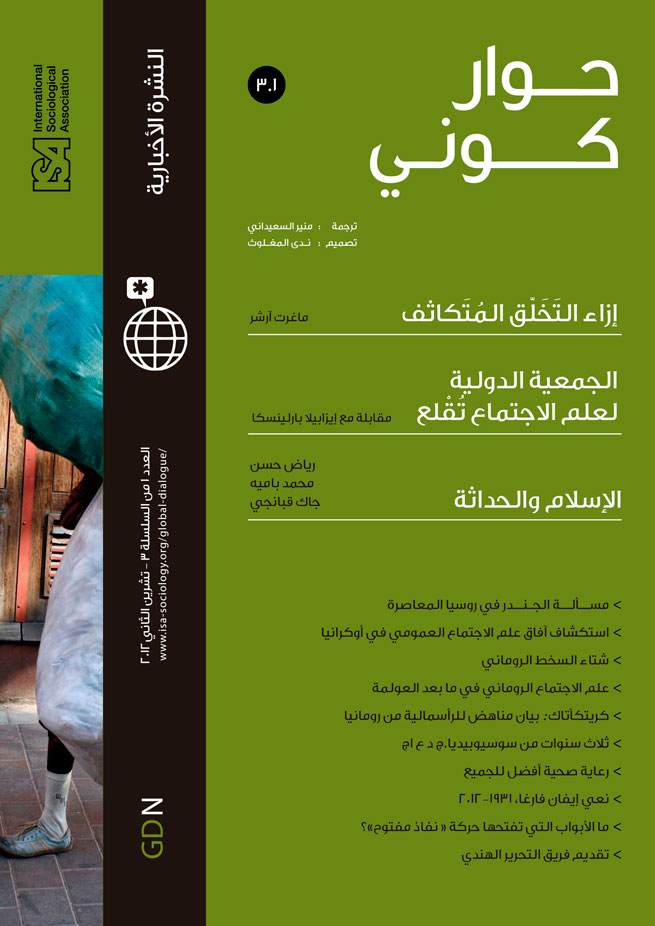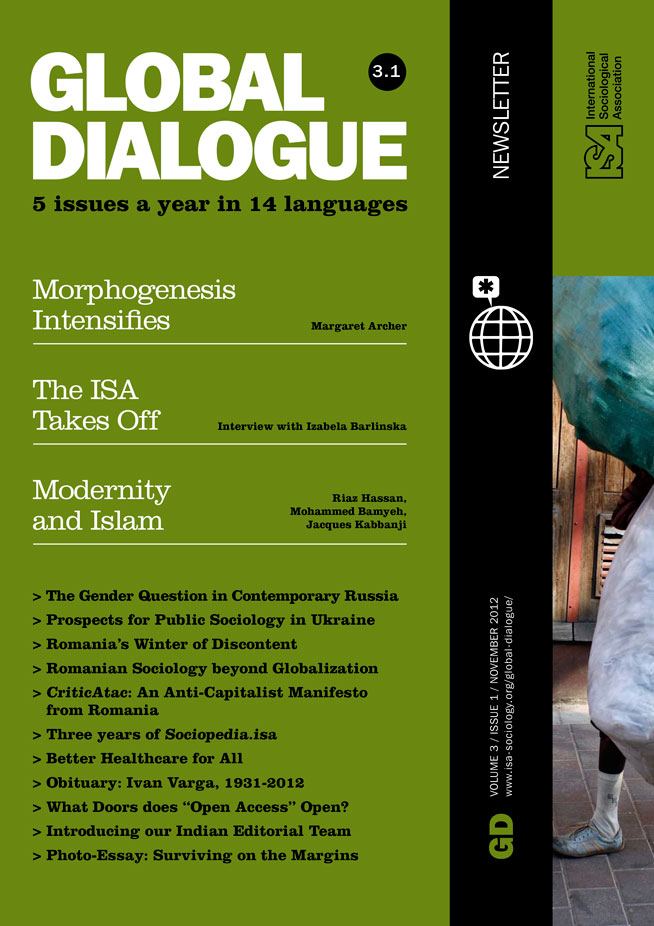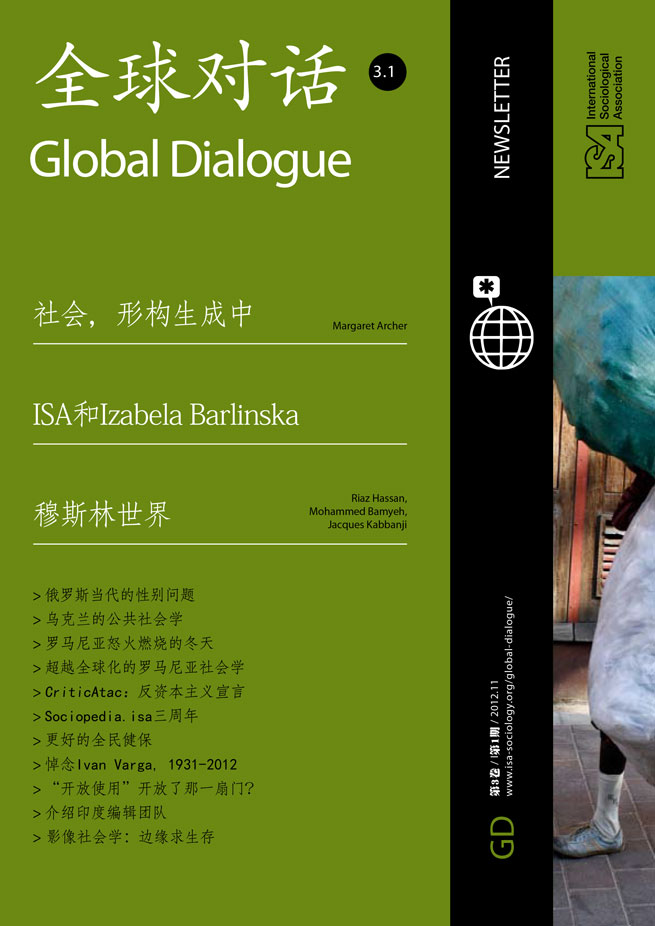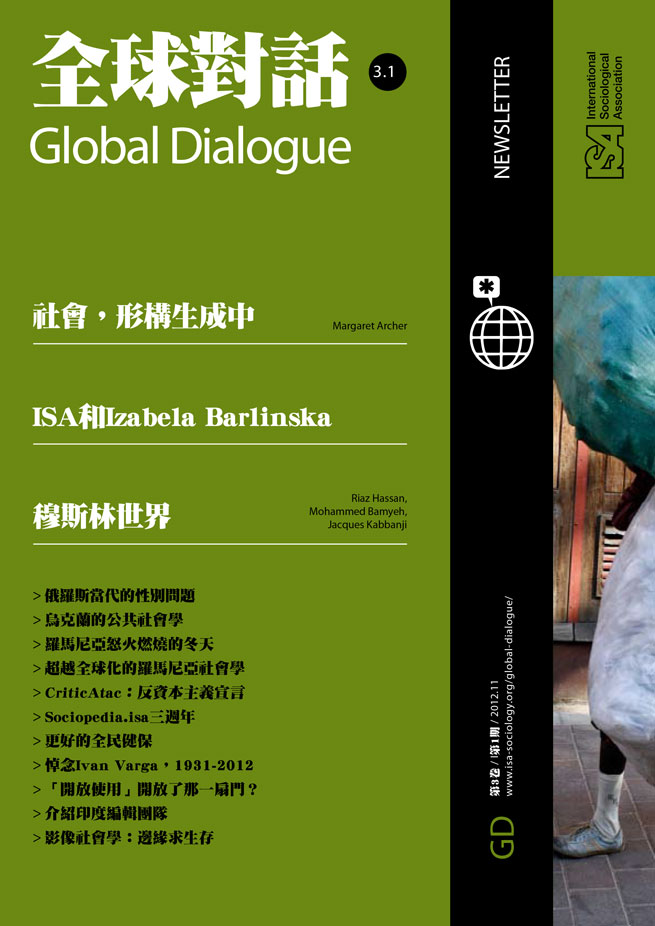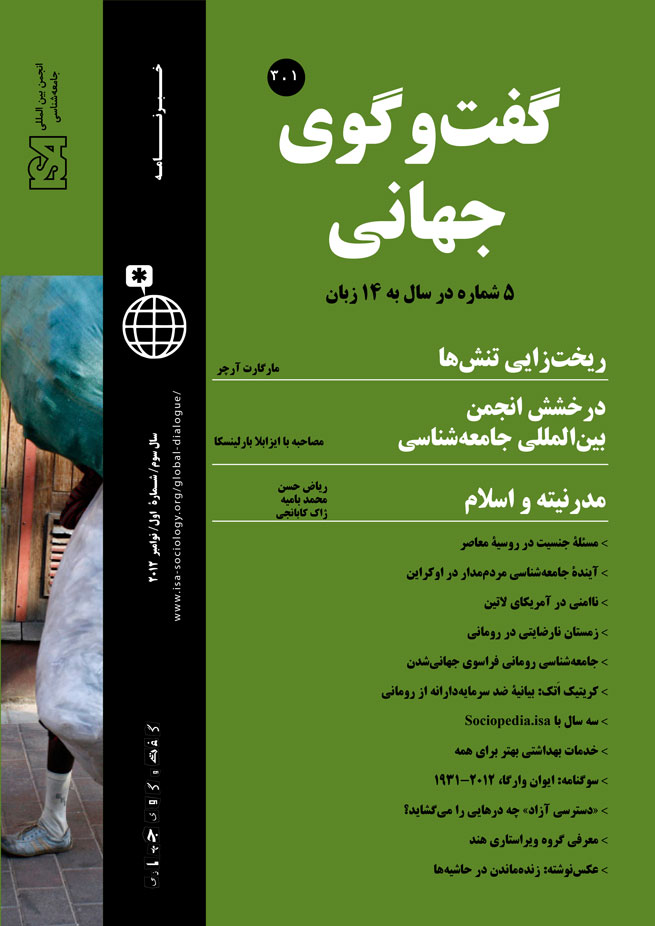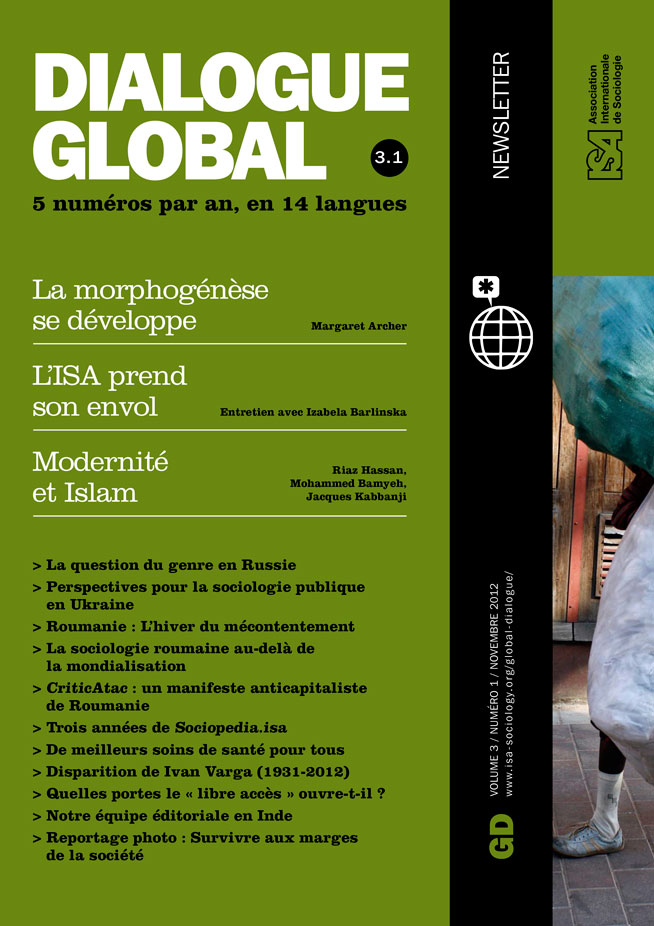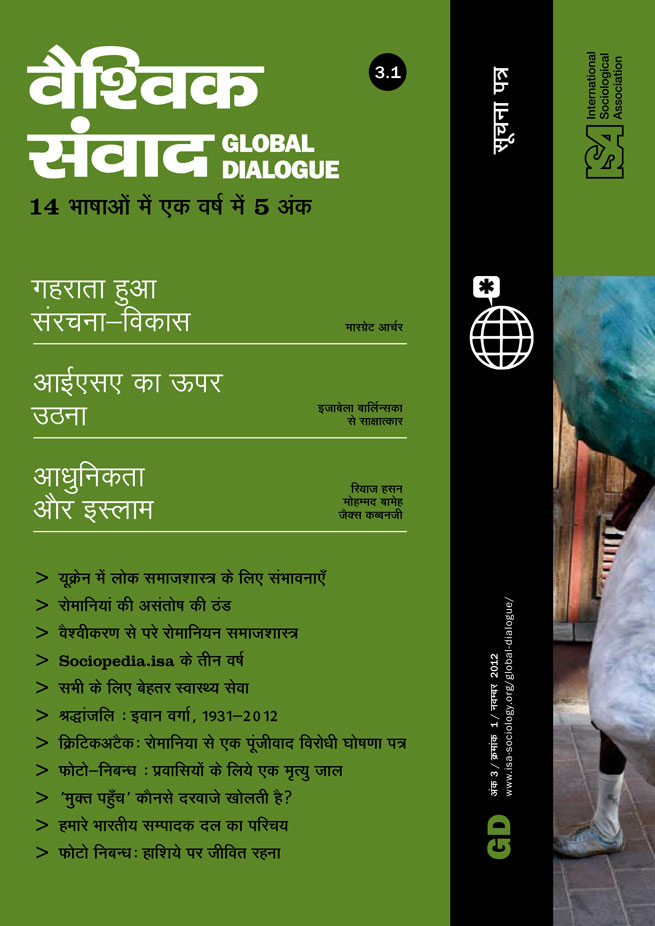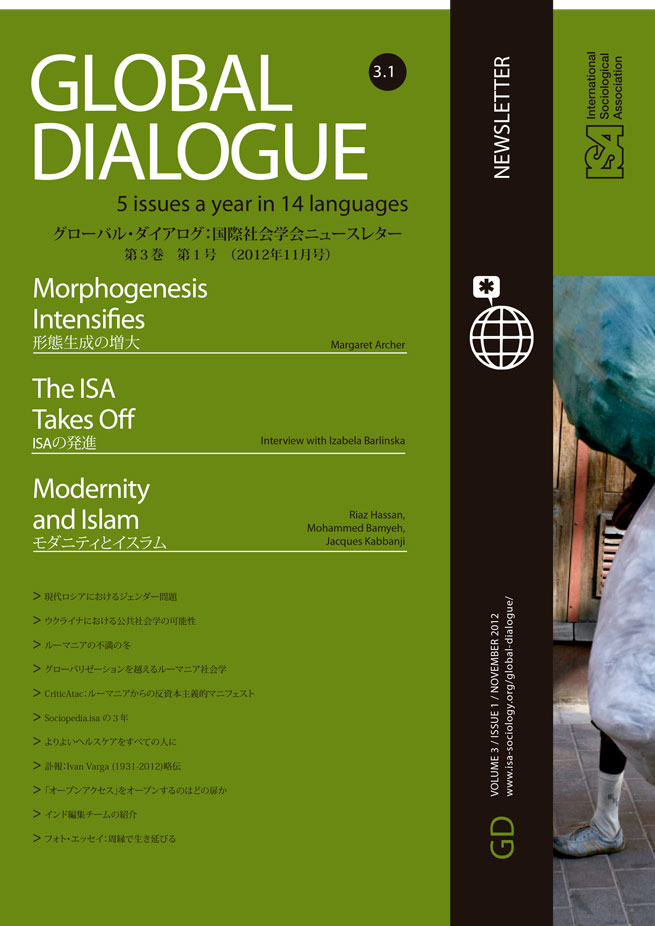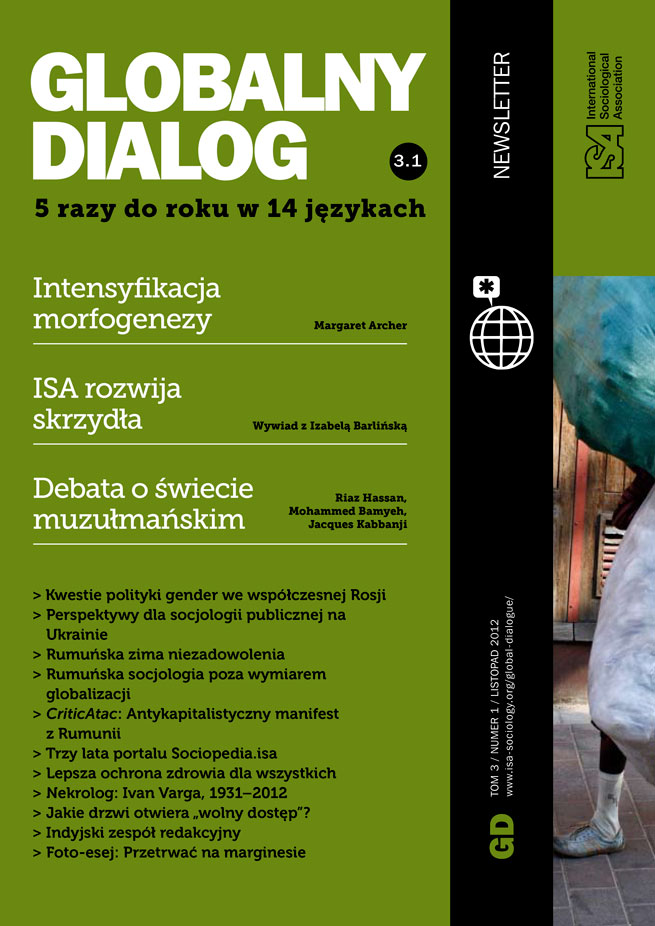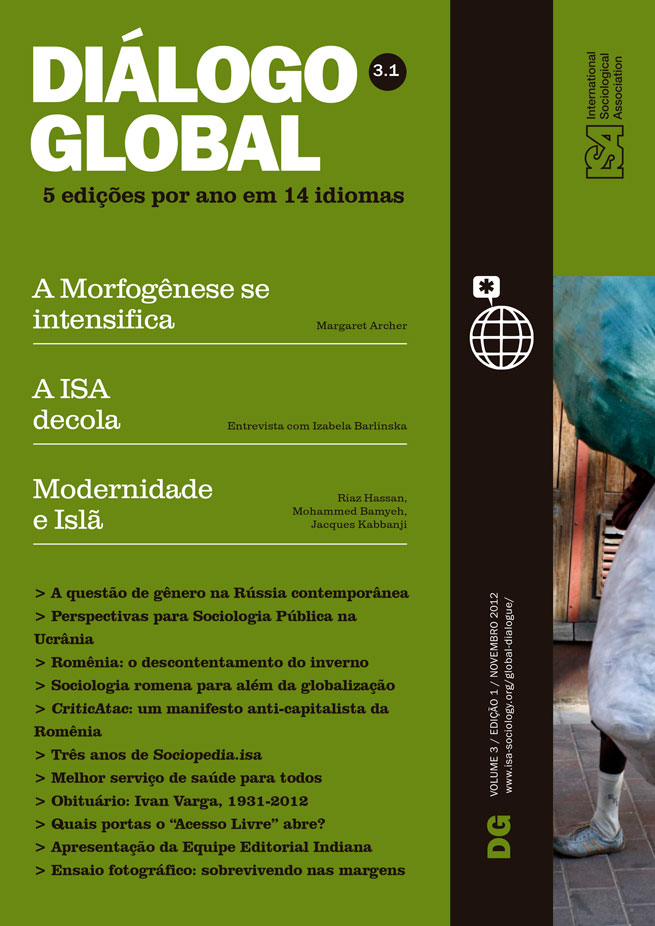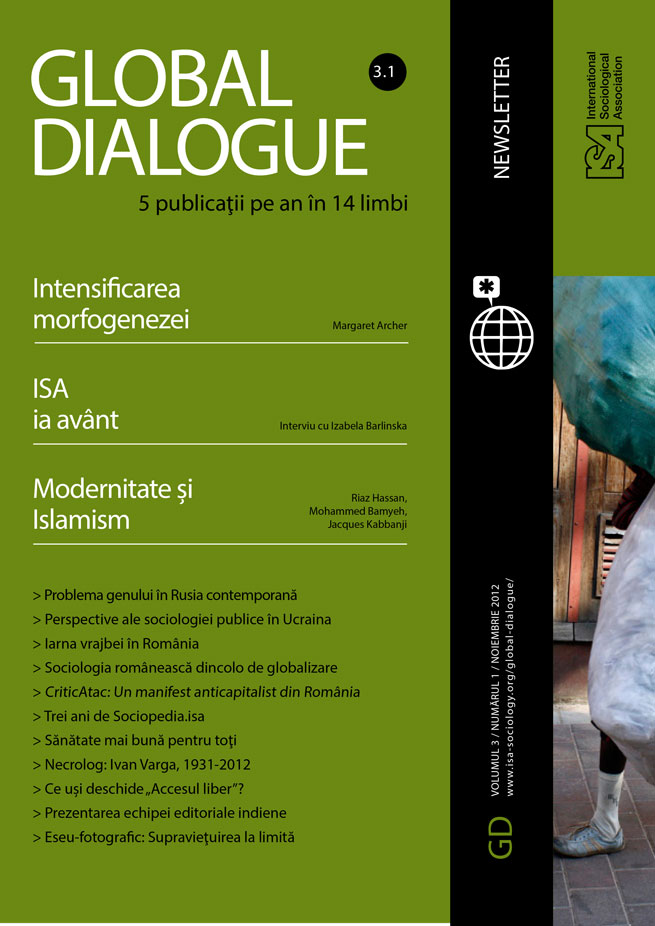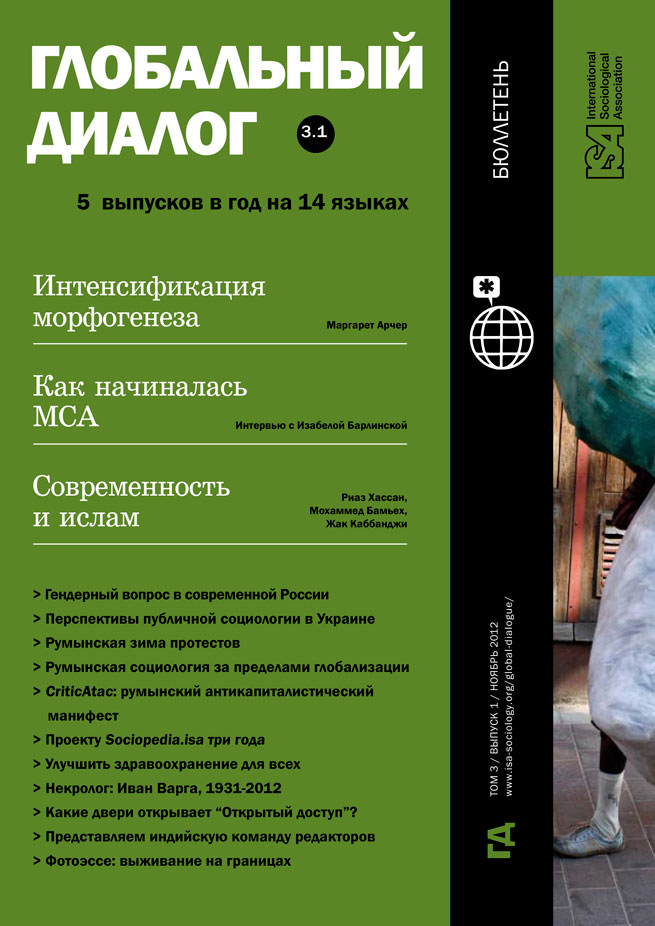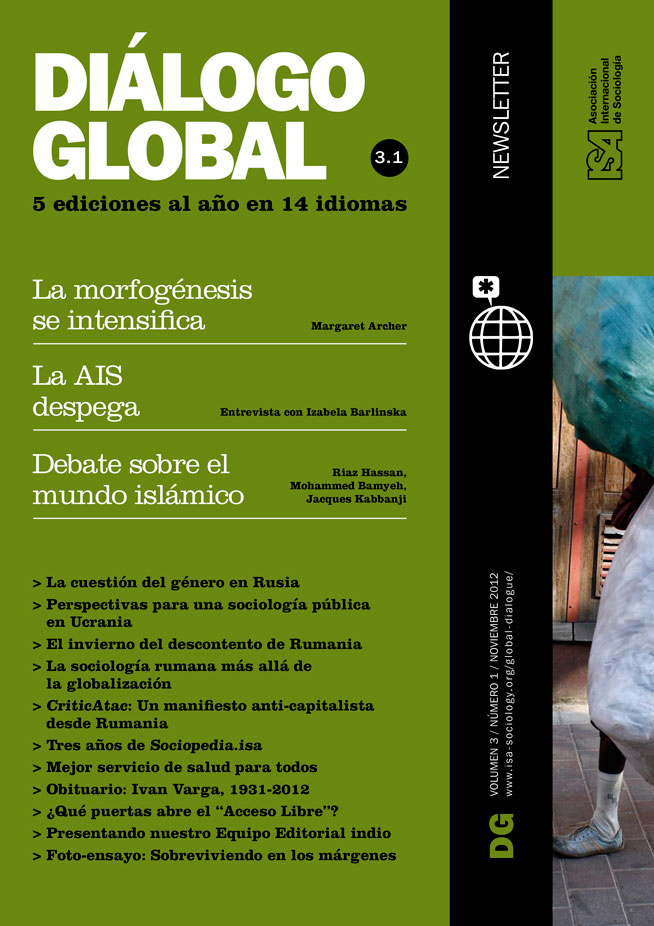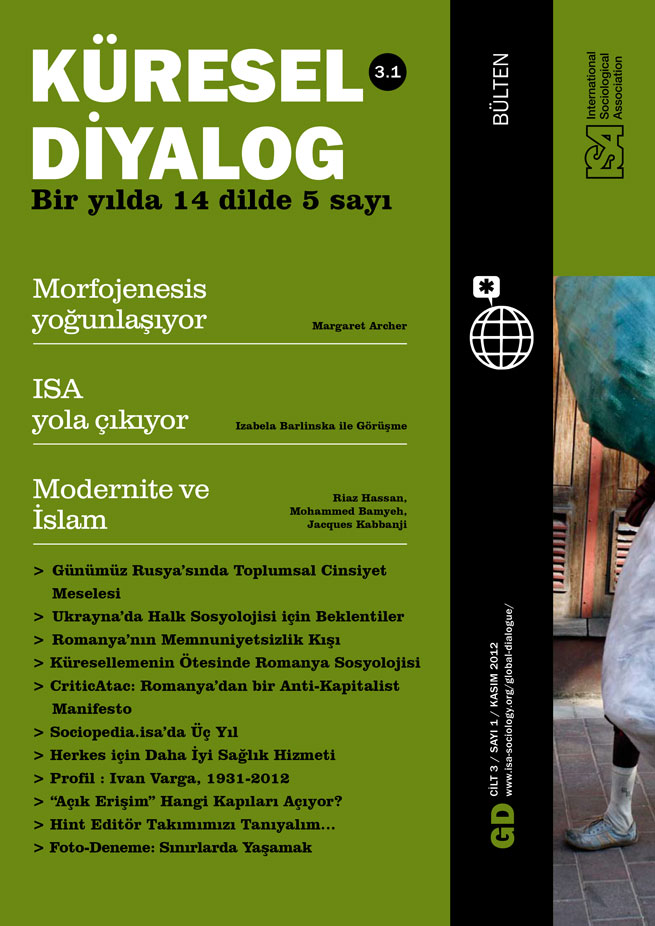Read more about Special Columns

Photo-Essay: Surviving on the Margins
by Alexia Webster and Edward Webster
Introducing the Indian Editorial Team
by Ishwar Modi
October 27, 2012
“Open access” is a movement which is spreading rapidly beyond its points of origin, and brings some threats as it approaches the social sciences. The basic idea is simple and attractive: everyone should be able to benefit from the research knowledge available in journal articles. Important from one side of the movement has been the anger of natural scientists at the excessive prices charged, and profits made, by some publishers of the journals they use, which has led to a boycott of Elsevier journals. A more recent ideological theme, crucial to new British government policy, is that the products of state funding should be freely available to the state’s citizens. Relatedly, it is claimed that businesses, in particular, will benefit from such access and thereby promote national economic growth. Major funding bodies in the USA and Britain are now requiring that the research they have funded should be published only in journals which provide free access for readers – thus putting pressure on journals to change their practices.
At present the normal system is that publishers produce journals, and access to them depends on the payment of a subscription. Most often these days that is paid by universities, which then make the journals free online to their members. This is complicated by the fact that major publishers now normally sell subscriptions to libraries in the form of large bundles of journals rather than single ones, which gives access to many but at considerable cost. Authors of articles are not paid, and considerable unpaid labour goes in at the university end, but there is no doubt that the production process also has considerable costs, which somehow need to be covered.
Two broad alternative models of “open access” are being widely discussed. The “Gold” model requires the authors [assumed to mean their university or research funding body] to pay a substantial fee to cover the cost of publication, but the articles will be open to readers without payment. The “Green” model does not make authors pay, but requires deposit of the article in some accessible repository, perhaps after an embargo period of 6 or 12 months (too long for the speed of some natural science fields) to leave some incentive for subscriptions. Under either model, authors benefit from more readers having access to their work, and readers benefit from having that access. But what are the other effects?
There are variants on these basic models which we cannot go into here. It is accepted that there could be “hybrid” journals that are prepared to let some papers be released to a repository while others are not; this is the American Sociological Association’s current policy. Some journals might act on the perverse incentive to prefer papers without the funding which required them to provide open access. British national research councils are now requiring not only free access to the papers published, but that each provide access to its data so that it can be mined or reanalysed. How would this deal with issues of confidentiality in social science?
The ISA clearly needs to develop a policy appropriate to its international mission, and it will be very much helped in doing that if it has information on how these issues are emerging in worldwide sociology. We know that in some places the system of journal publication and funding varies from that taken as standard in Europe and North America, and the discussion elsewhere may raise further questions that we should consider. It will be very much appreciated if you could let us know how things look from where you are, and what your thoughts are on what ISA policy might be. Please write to me at j.platt@asussex.ac.uk.
Jennifer Platt, University of Sussex, UK, and ISA Vice-President for Publications, 2010-2014
This issue is not available yet in this language.
Request to be notified when the issue is available in your language.
If you prefer, you can access previous issues available in your language:
